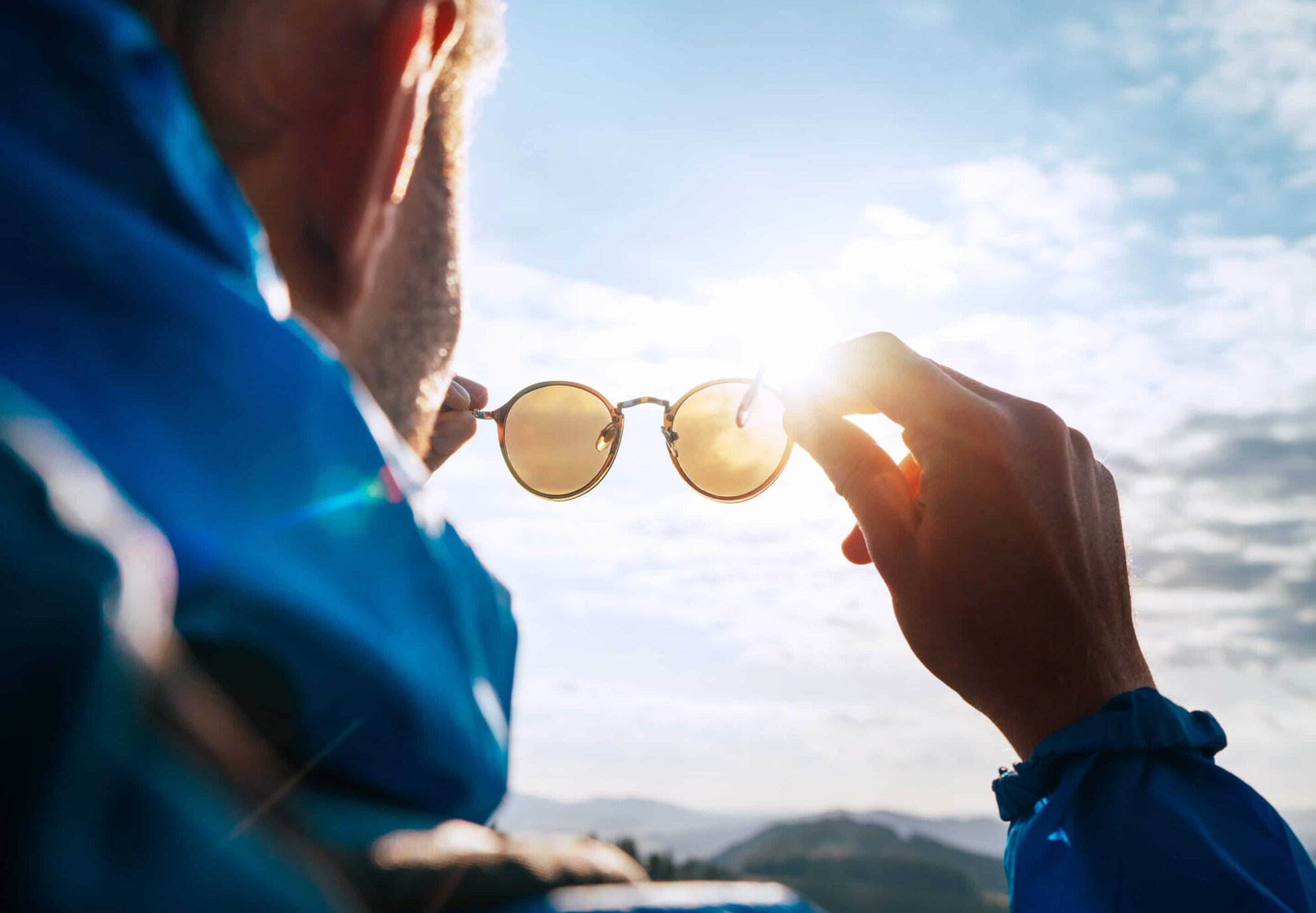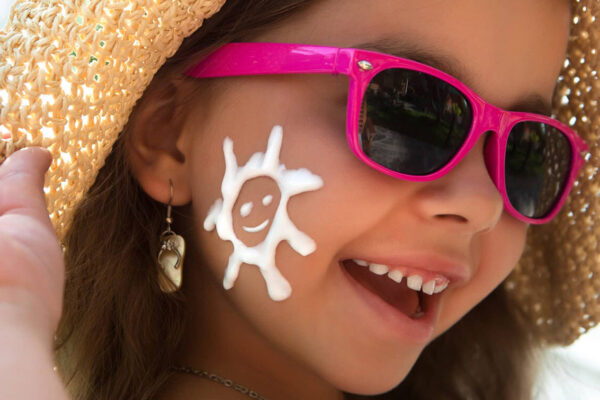Do I Need UV Protection in My Eyewear?
We don’t have to tell you that the sun can be somewhat elusive in Michigan at times. We can have superbly sunny stretches of summer, but still, get plenty of overcast days. Then winter comes and our time with the sun can feel almost painfully fleeting.
So when it comes to UV protection in eyewear, we aren’t surprised when we are asked whether it’s necessary. We’re not getting day after day of tropical rays beaming down on us, after all.
But the upfront answer to UV protection is that yes, it is still important for our eyes even on the days when we’re not necessarily at risk for sunburn. The long-term effects of UV ray exposure are well worth considering year-round, but you thankfully never have to look far for eyewear with proper protection.
Why Are UV Rays Dangerous for Our Eyes?
Ultraviolet (UV) radiation arrives on the earth courtesy of the sun. They are divided into three general types, based on their wavelengths: UVA, UVB, and UVC. UVA has the longest wavelength and UVC the shortest.
UVC rays can be very harmful but are thankfully not something we have to worry about. The ozone layer absorbs UVC rays easily. However, a good amount of UVB and almost all UVA rays make it past the planet’s outer defenses and straight to us.
UVA rays have a high enough energy to easily penetrate through the atmosphere, which also makes them more than a match for the eyes. Their radiation can reach back to the retina, and overexposure can increase the risks of macular degeneration and cataracts.
UVB rays do not have as much power, but can still cause damage within the eye. One common condition caused by UVB radiation is photokeratitis, also known as “snow blindness.” This can inflame the cornea and lead to temporary blurriness and vision loss.
Signs of short-term UV exposure in the eyes are somewhat like a sunburn. Your eyes may feel red and puffy, and there may also be a feeling of grittiness as you blink or move your eyes as if sand is in them.
The skin of your eyelids and around your eyes is also not immune from UV radiation. Just like with other areas of your skin, prolonged UV exposure can cause cellular damage and increase the risk of skin cancer.

UV Exposure Happens More Often Than You Might Think
But if the sun’s not out or not beaming intensely, then there isn’t anything to be concerned about, right?
Unfortunately, no. Not right.
Even when the day is cloudy and overcast, UV rays from the sun are still quite capable of reaching us. And not only can the rays hit us from above, but they can easily bounce off surfaces such as buildings, water, and snow to hit us from the sides and beneath as well.
We’ve already mentioned how photokeratitis is commonly called “snow blindness,” and that’s for good reason. The white, crystalline surface of snow makes it an ideal reflector of light and UV radiation. Winter does not afford us that much reprieve from exposure!
Additionally, certain environments can give off some UV exposure outside of the sun. These include tanning beds, certain welding machines, and certain types of lasers. Proper eye protection tends to be a requirement around these items, though.
Protecting Your Eyes Against UV Rays
The good news is that most prescription eyeglasses come with a UV-prohibiting coating as a standard option, so you are likely already receiving some protection if you wear prescription lenses.
That said, it is never a bad idea to fully discuss your options for UV protection with us, especially if you spend extended time outdoors or are in any other situation where additional UV protection may be beneficial for you.
Prescription sunglasses are always a potential option, providing both enhanced UV protection and clear vision without having to mess around with clip-ons. Sunglasses are also recommended for anyone who has contact lenses, even if those lenses also offer some UV protection.
An ideal UV protection factor for any pair of sunglasses is UV400. This provides 100% protection against UV radiation. You might see “polarized” used in conjunction with UV protection in the selling points of sunglasses, but they are not the same thing. Polarization reduces glare but is ineffective for UV protection on its own.
We Have the Protective Options You’re Looking For!
Whatever your needs are for UV protection, we can help you find the best lenses and frames for you. We not only want your vision clear and healthy but carry a wealth of frame styles to ensure you look as great as you see!
We’ll be happy to discuss any additional needs you might have as well, including blue light protection if you have heavy screen time and anti-reflective coatings if you need to reduce glare while night driving.
We’re always willing to take the time needed to answer all your questions and discuss the best route for your vision care. That’s a big part of why we remain an independent practice – so we can put you first without having to dash from patient to patient!
Schedule an appointment at Mattawan Family Eye Care by giving us a call or by filling out our online contact form.


